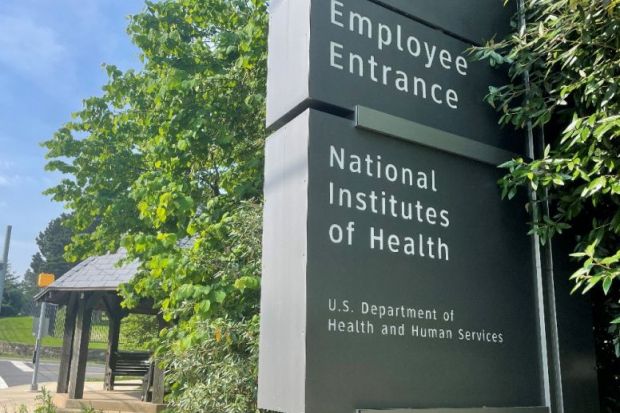The Biden administration nominated Monica Bertagnolli, a former Harvard University professor and current director of the National Cancer Institute, to lead the National Institutes of Health.
Dr Bertagnolli, a surgical oncologist, was appointed just last October to head the NCI, the NIH’s biggest division, and announced shortly afterward her own diagnosis with breast cancer.
If confirmed by the US Senate, Dr Bertagnolli would fill a vacancy dating back to the December 2021 resignation of Francis Collins after a record-setting 12 years heading the nation’s largest funder of basic science.
Her selection has been welcomed in the academic community as a choice reflecting established competency at a moment when the NIH is facing significant political challenges from within both major parties.
Republicans controlling the US House of Representatives have threatened cuts to the NIH budget, animated by the NIH’s public advocacy of Covid protections during the Trump administration and by unproven allegations that the agency funded research that helped to create the virus. Some progressives, meanwhile, have pushed the NIH for more progress on diversity in grant awards and on resisting corporate pressure related to patents and drug prices.
The long delay in finding a successor to Dr Collins was widely seen as a reflection of such turmoil, especially as it involved Anthony Fauci, whose role as long-time director of the NIH’s National Institute of Allergy and Infectious Diseases made him a chronic personal target for conservative anger over Covid during the Trump administration.
The selection of Dr Bertagnolli matches the moment, according to the 251-member Association of Public and Land-grant Universities (APLU). “Dr Bertagnolli is a gifted surgeon and trailblazing research leader whose personal and professional experience positions her to lead NIH at a critical time,” the APLU’s president, Mark Becker, a former president of Georgia State University, said in a response to the Biden announcement.
Dr Bertagnolli presents as a “traditional nominee – someone with a long history of involvement in biomedical research and with the NIH itself”, said Stuart Buck, an expert in research-related philanthropy now serving as executive director of The Good Science Project.
“What remains to be seen,” Dr Buck said, “is whether she has the appetite to tackle issues of systemic reform at NIH, especially in a political environment where NIH is going to face more public scrutiny and criticism.”
Such reforms should be data-driven – ensuring that NIH research expenditures correspond to biomedical innovation – and Dr Bertagnolli seems a good choice for pursuing that, said Philip Bourne, a former associate director for data science at the NIH, and now dean of the School of Data Science at the University of Virginia.
Dr Bertagnolli, a daughter of Italian and French Basque immigrants, is the first woman to head the NCI and would be the second to lead the NIH. She was raised on a ranch in Wyoming and earned an engineering degree at Princeton University and a medical degree from the University of Utah.
She trained in surgery and studied tumor immunology at two Harvard-affiliated institutions, the Brigham and Women’s Hospital and the Dana-Farber Cancer Institute. She has said that her own cancer – hormone receptor-positive, HER2-negative – has a favourable prognosis.




